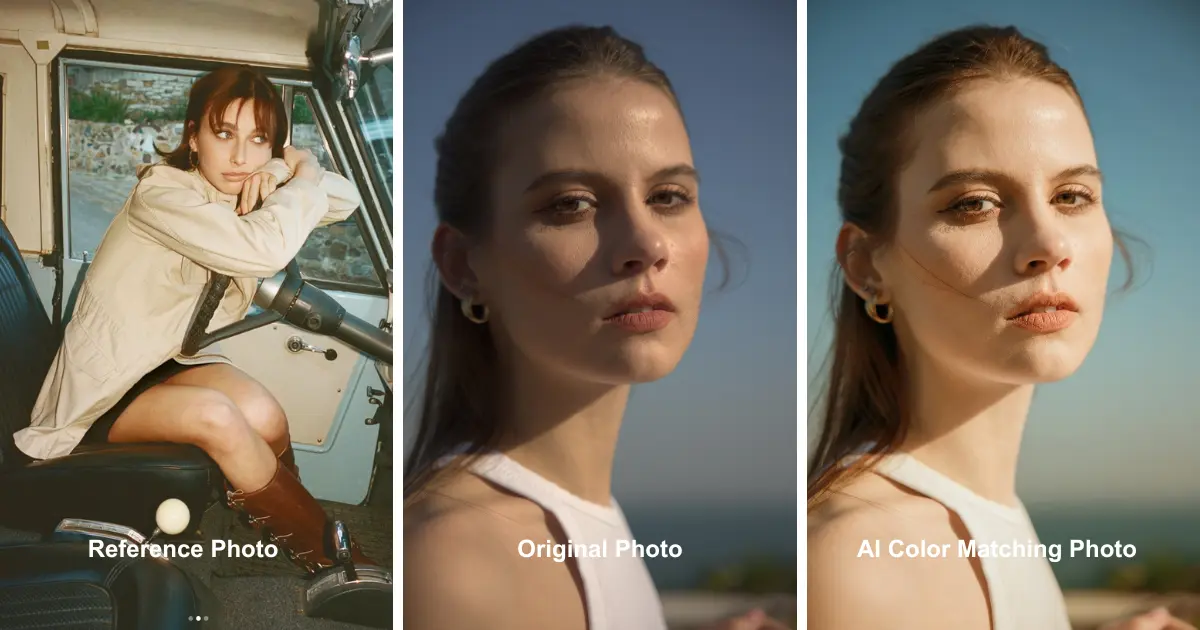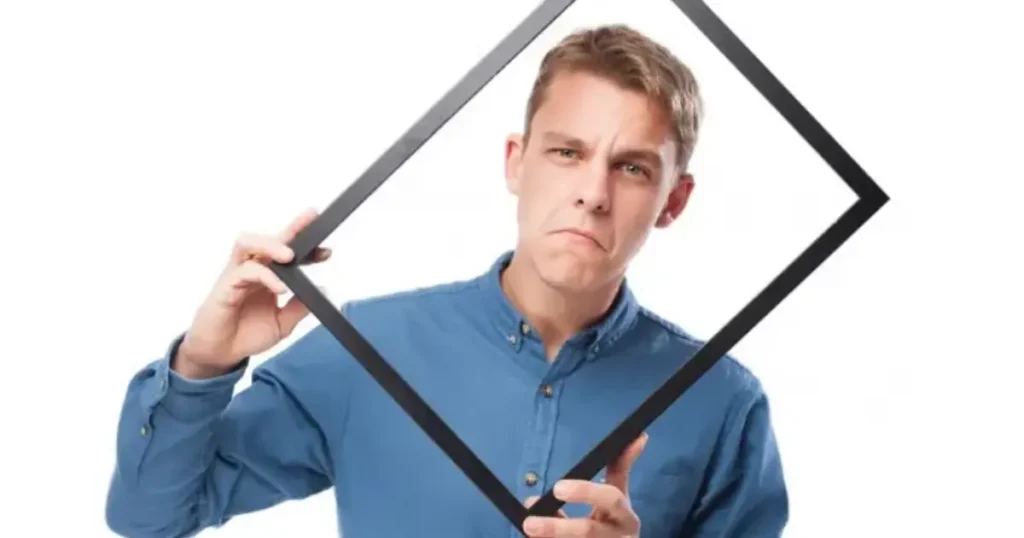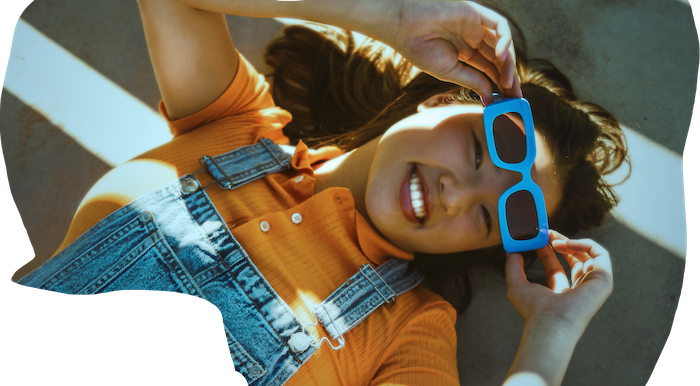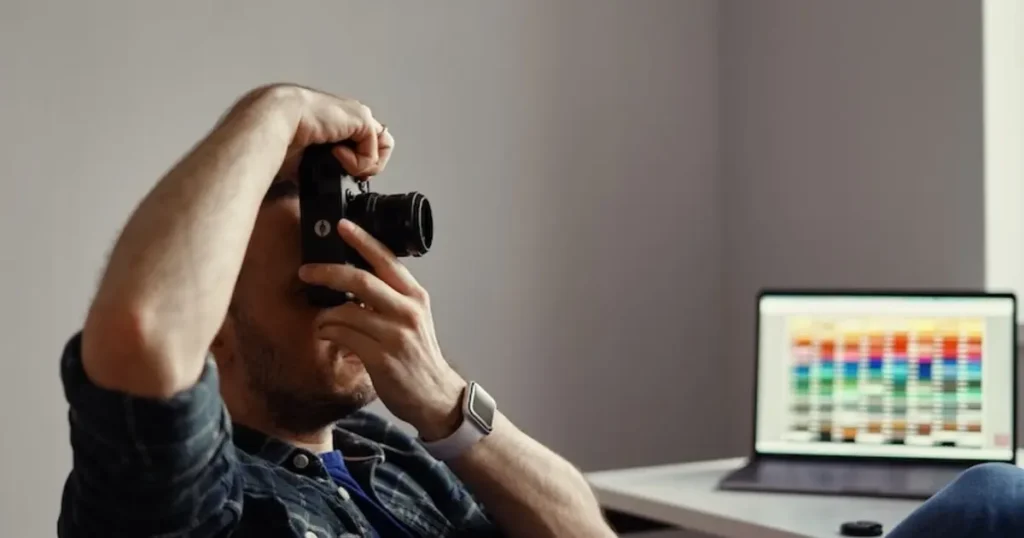Consistent and accurate color matching is a cornerstone of professional photography and design. Whether crafting compelling branding images or creating harmonious composites, achieving the perfect color match is essential. Thanks to technological developments, AI Photo Editor now can streamline the way to match color from photos, ensuring precision and efficiency.
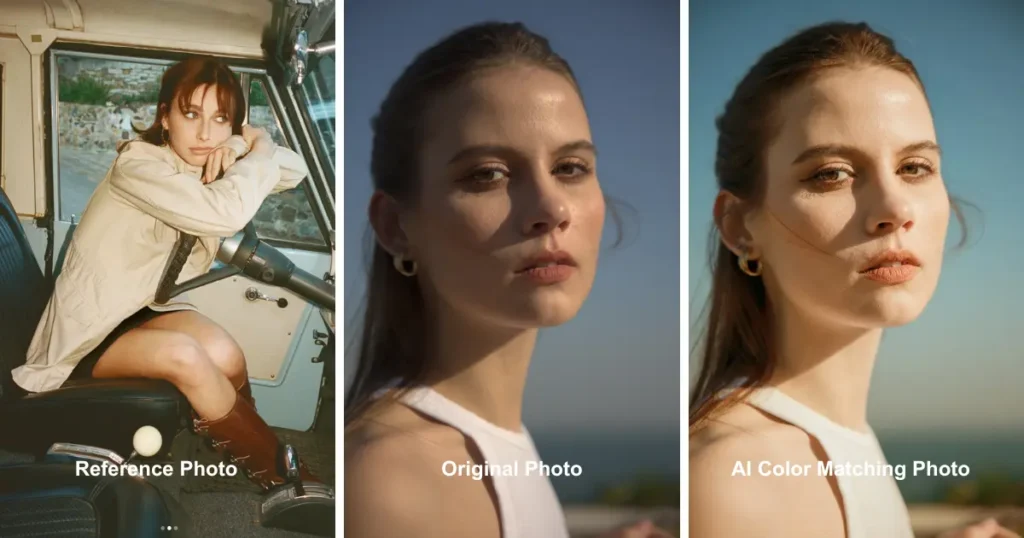
What is Color Matching in Photo Editing?
Color matching in photo editing is the process of transferring the color styles to a target image to make its looks be similar with those of a reference photo. This technique ensures that the source photo achieves the same or similar color appearance as the reference image, creating visual consistency and harmony.
For example, in branding, color matching helps maintain uniform color style across marketing materials.
Additionally, it’s widely used in product or portrait photography to accurately represent color styles of a specific theme, and in creative projects to evoke a specific mood or aesthetic.
Modern tools, especially those powered by AI, simplify the process by automatically analyzing the reference image and transferring the color styles with precision, saving time in photo color adjustment while delivering professional results.
AI Color Match from Photo and Analysis
Next, let’s analyze some photo color styles to have a better understanding of color match from photo. For photo selection, your reference picture should be similar with the target picture in terms of lighting, scene, and character’s features.
For example, it would be better to transfer color to a portrait photo from another portrait photo, not landscape photo. It is better to use photos of the similar “style”. If two photos are too different, forcing them to match the colors may not produce the desired effect.
Here are three photos. The left one is a reference photo (Picture 1) with the color style we want. And the middle one is the original or source photo (Picture 2) that we need to edit. The right photo is the result of AI color matching (Picture 3), which got the color style transferred from Picture 1.
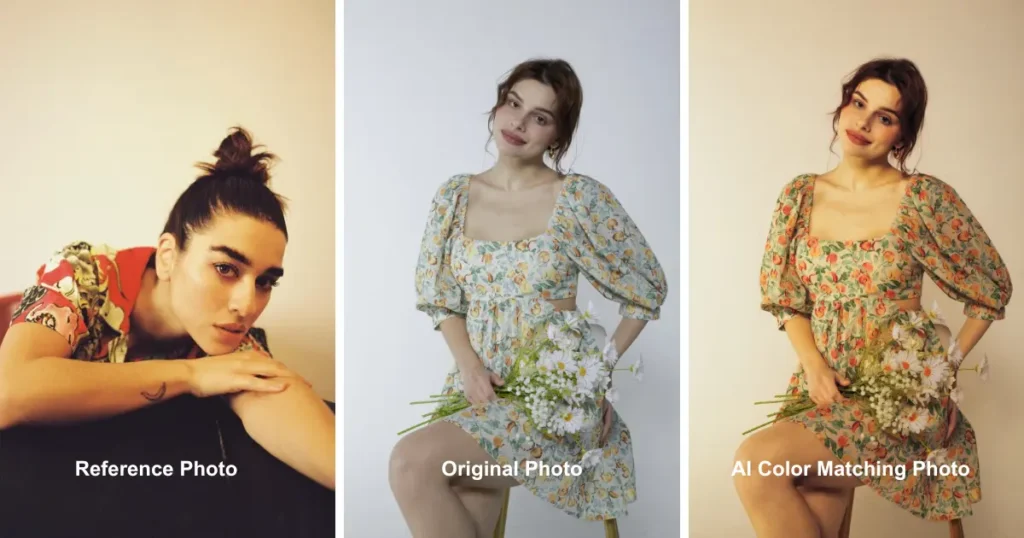
Let’s see the color analysis of three images:
Analysis of Picture 1 (Reference Picture)
The first image presents a warm-toned color scheme that immediately creates a yellowish-orange tint, cozy and nostalgic ambiance. With a moderately high color temperature, it has a charming yellowish-orange tint. The exposure is expertly balanced, ensuring no areas are overexposed or underexposed, thus enhancing the overall visual appeal.
Moreover, the moderate contrast not only defines the shapes and features within the picture but also provides a smooth transition between different tones. The shadows have depth yet retain details, adding richness. The well-controlled highlights are bright enough to add dimension without sacrificing detail.
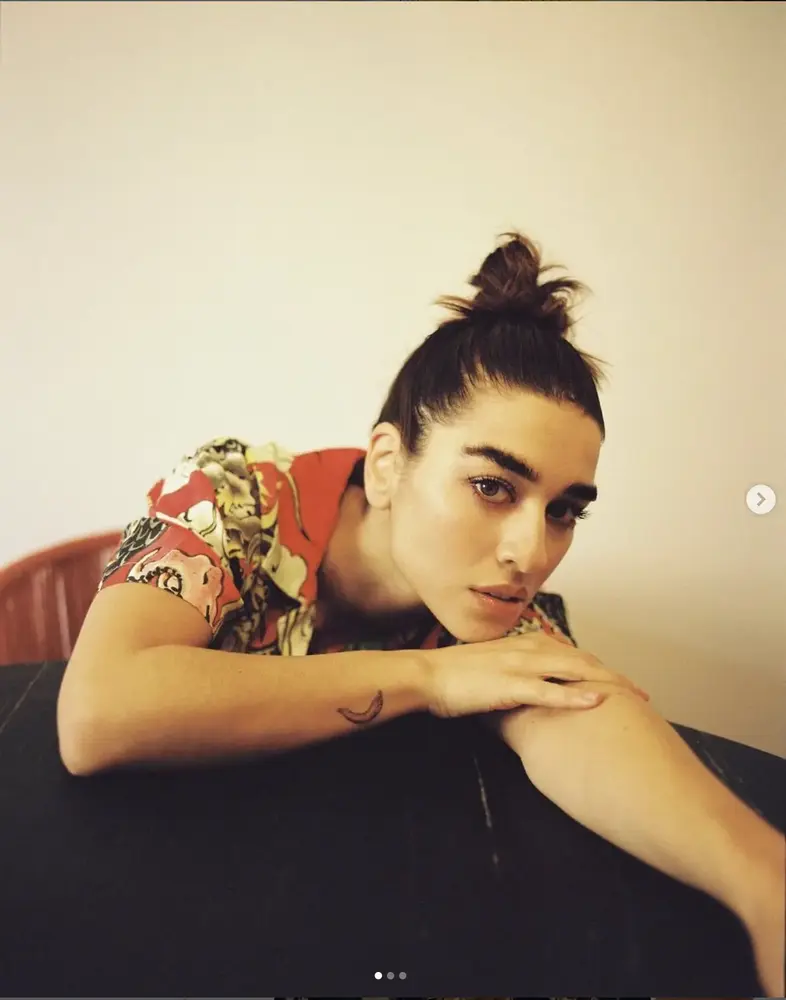
Finally, the soft texture gives the picture a dreamy and timeless quality that truly elevates its aesthetic charm.
Analysis of Picture 2 (Original Photo)
The second picture has a cool-toned color scheme. Its low color temperature gives it a distinct blue-tinted look. And the exposure is slightly high, which causes some areas to approach overexposure and results in lost details in the highlights. Then, the low contrast makes the image appear flat, and although the light shadows preserve details, they contribute to this flatness. The muted colors and low saturation give the picture a subdued and minimalist aesthetic.
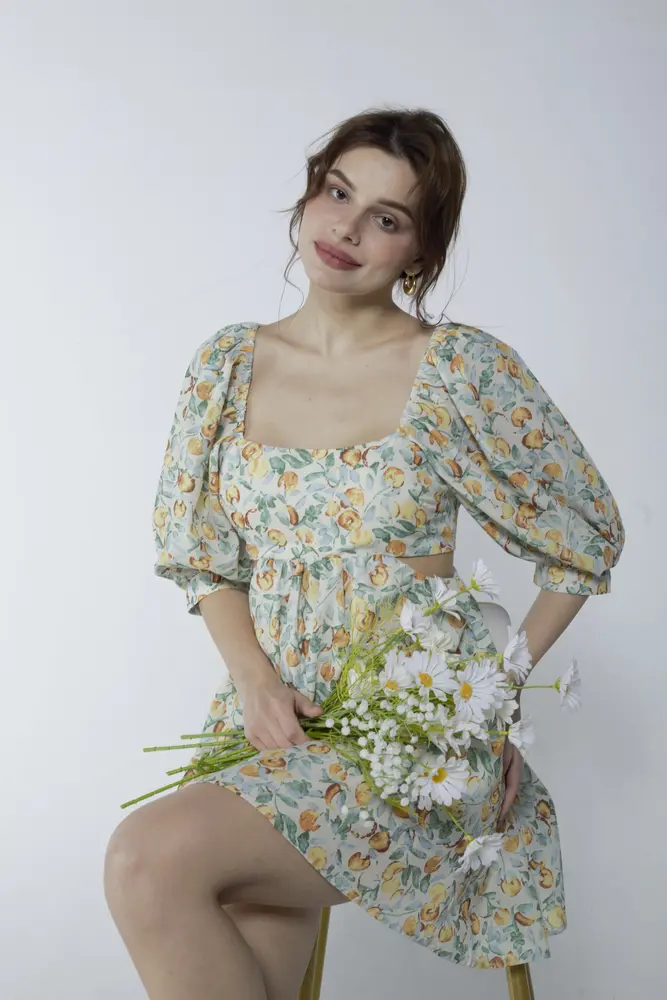
Additionally, the relatively sharp texture gives it a modern and realistic look that stands in contrast to the soft texture of the reference picture.
Read More: Master Color Curves: How to Use Color Curves to Edit Stunning Photos
Analysis of Picture 3 (AI Color Match Result)
Now, looking at the third picture, it is the result of the Evoto AI Color Match from photo 1. It has a warm-toned, enhanced-contrast, and increased-saturation color scheme compared to Picture 2.
Firstly, the color temperature has been adjusted to match the warmth of the reference first picture, thus creating a more inviting feel. The exposure is now more moderate, which corrects the overbrightness of the original.
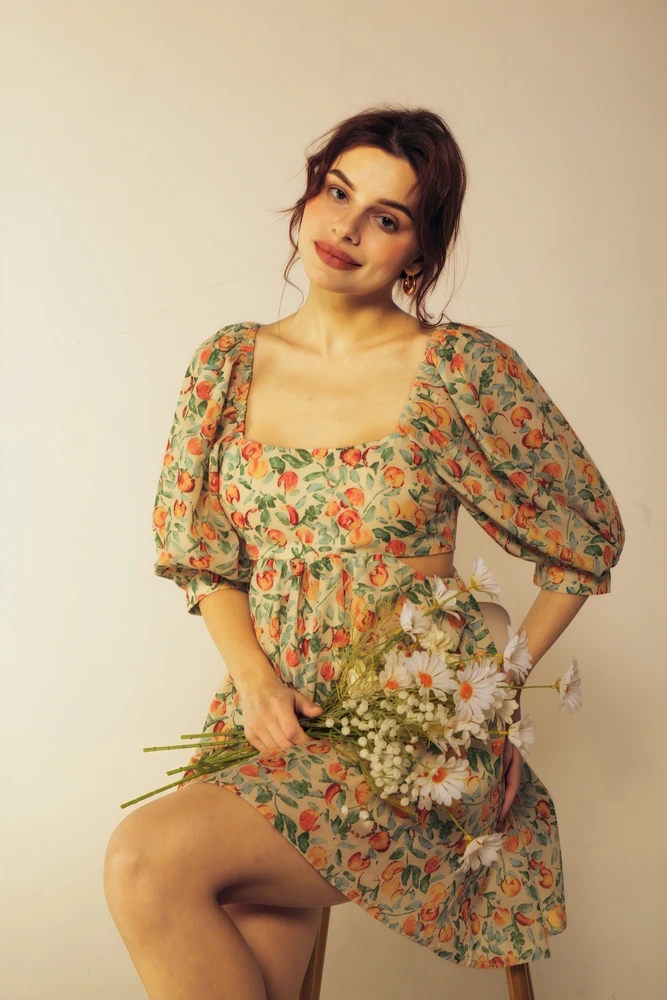
Moreover, the enhanced contrast gives the image more depth and dimension, making it visually captivating. The shadows have been adjusted to add more detail, while the highlights are better controlled to prevent overexposure.
Furthermore, the texture has become softer, similar to the reference picture, adding a touch of nostalgia. And the increased saturation makes the colors more vivid and brings it closer to the reference picture’s aesthetic.
Read More: Guide: Fast Get Teal and Orange Color for Wedding Photos
Evaluation of the Effect
1. Clothes: In the original photo (Picture 2), the clothing has a cooler tone. After AI color matching (Picture 3), the color temperature is adjusted to match the warm tone of the reference picture (Picture 1). The colors of the clothing become more vivid and warm, similar to the reference.
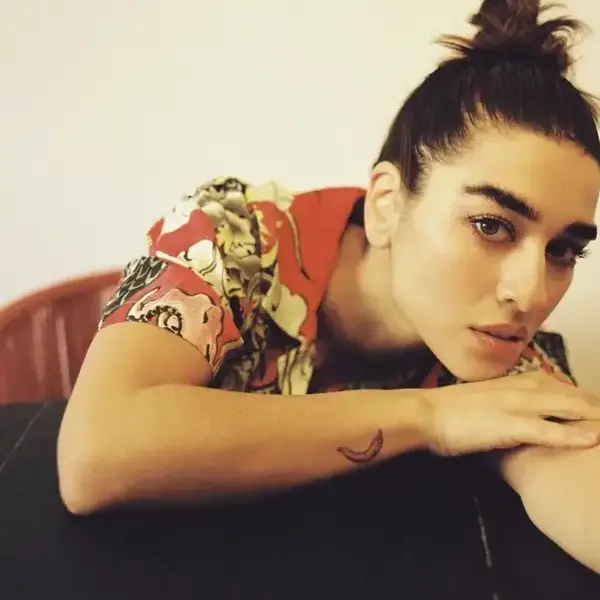
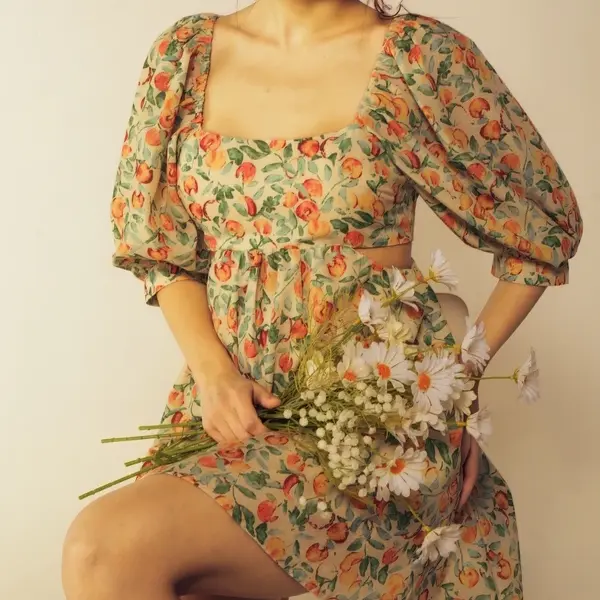
2. Skin: The skin tone in the original photo is relatively pale. Through AI processing, the skin tone changes in AI color matching (Picture 3) and is made warmer, closer to the warm-toned skin in the reference picture.
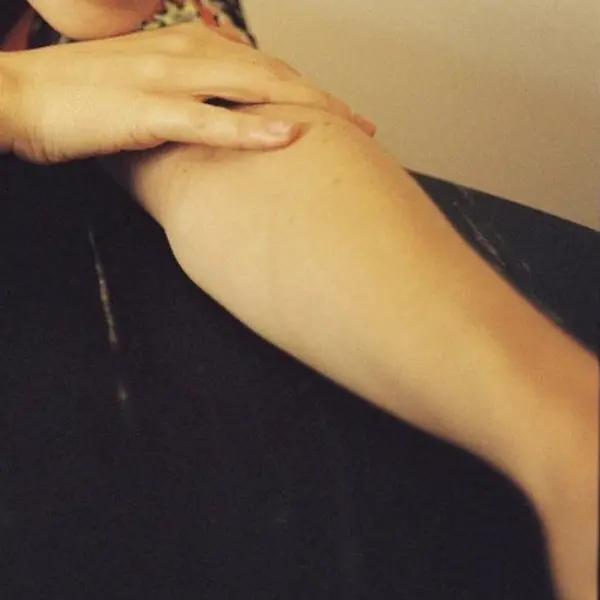
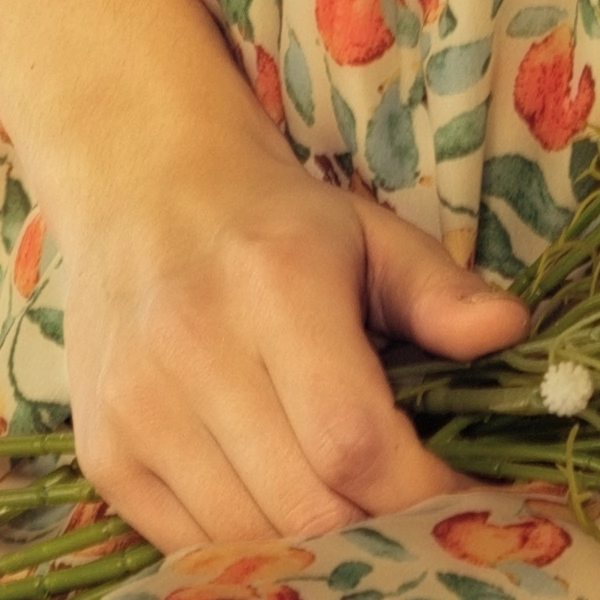
3. Makeup Style: Although it’s hard to distinguish makeup details precisely, the overall color tone of the face in AI color matching (Picture 3) is adjusted to match the warm and soft-looking makeup style of the reference picture.
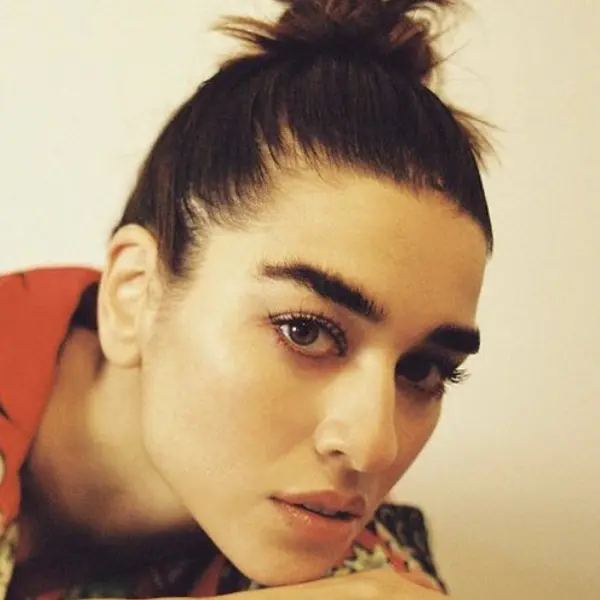
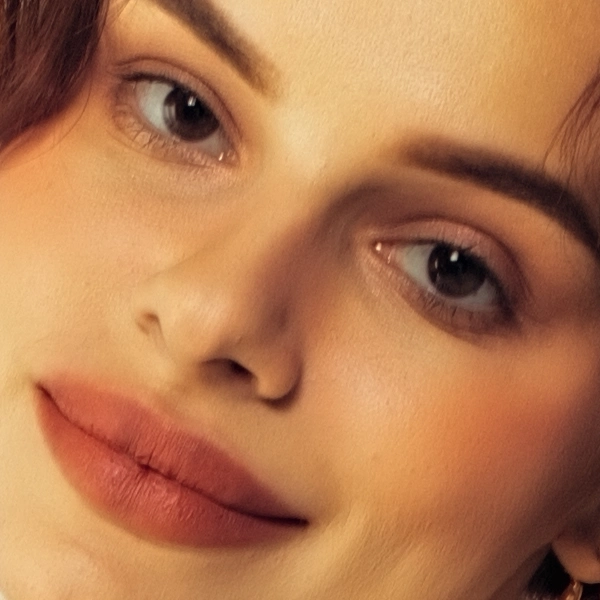
4. Accessories: There are no significant accessories in these pictures. However, if there were, the AI color matching would likely adjust their color tones to match the warm and harmonious color scheme of the reference picture.
The AI color match from the Picture 3 result has achieved remarkable results. It effectively captures the tone of the reference picture. Through the power of AI color matching technology, precise adjustments in color temperature, exposure, contrast, saturation, highlights, and shadows have been made.
This has led to an overall tone style that closely resembles the reference. The texture of the image has also transformed from the sharpness of the original to a softer one, reminiscent of the retro film-like feel of the reference picture.
Overall, the AI color matching result has done an excellent job in achieving a tone effect similar to the reference, enhancing the visual appeal and creating a more engaging and aesthetically pleasing image.
Evoto – The Most Efficient AI Photo Editor
Best Software to Match Color from Photo
Evoto AI stands out as a versatile color matching tool that offers precision, efficiency, and creativity. It eliminates the need for time-consuming manual adjustments by automating the process and providing user-friendly controls for custom edits.
Whether you need to match colors from photos to achieve a tonal style similar to a reference image for portraits or enhance consistency in creative projects, the latest Evoto AI version delivers precise and visually appealing results every time.
Key Features of Evoto AI to Match Color from Photo
- Automatically match color from photos
Evoto AI’s AI color photo technology intelligently analyzes a reference image and transfers its color style to your target photo. This feature is perfect for ensuring visual consistency across multiple images or projects. - Real-Time Preview
With Evoto AI’s real-time preview, you can see changes as you make them, giving you complete control over the final color match from pictures. This feature eliminates guesswork and allows for immediate adjustments, ensuring precision and efficiency in your edits. - Preset Feature
Evoto AI comes with a variety of preset options, also enabling people to apply photo grade color styles with a single click in AI Color Match. These presets are customizable, so you can create and save your signature looks for batch photo edits. - Customizable Adjustments
While the software automates the process, people have full control to fine-tune parameters like color hue, saturation, brightness, and contrast. This ensures that every detail matches your creative vision. - Color Grading Tools
With advanced grading tools, Evoto AI allows you to stylize your images with cinematic color tones, earthy palettes, or vibrant hues. This feature enhances storytelling and adds mood to your photos.
Step-by-Step Guide to Match Color from Photo with Evoto AI
Step 1. Import Photos to Your Project in Evoto
Download and launch Evoto AI photo editor on your computer. Select the image you want to edit and import.
Evoto – The Most Efficient AI Photo Editor
Step 2. Upload or Select a Reference Photo
Go to “Color Adjustment” > “Color Match” and upload the reference image. You can also choose a reference photo from your current project. Just select the reference from the “Preview” bar, and then click “Create Color Match from Preview”. After that, it will show the selected photo on the panel.
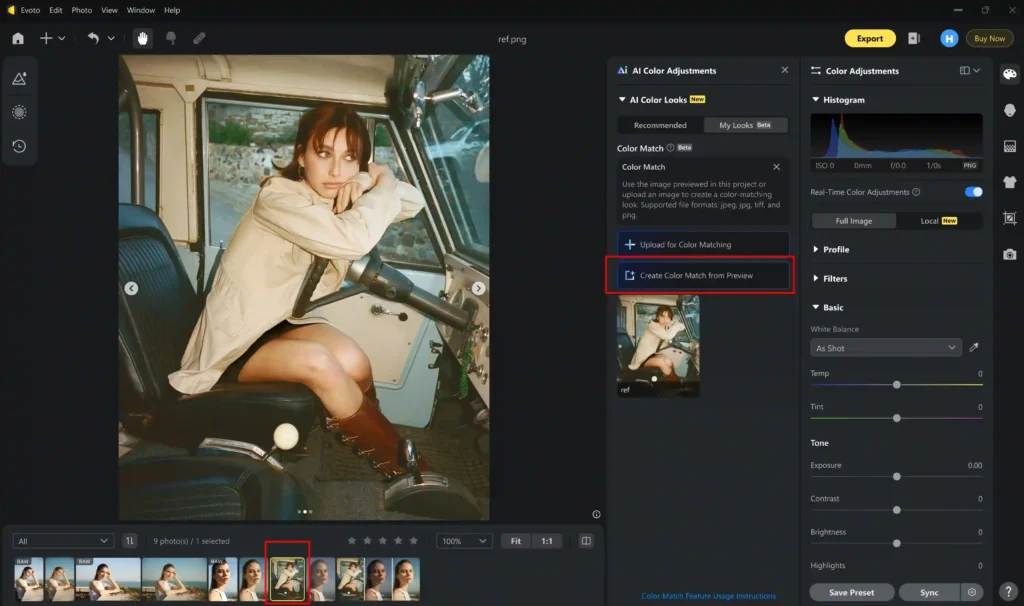
Step 3. Apply AI Color Match
Choose your target photo from the “Preview” bar. Then, click the reference image from the right panel to copy the color style and transfer it to the image you want to edit. Also, you can drag the slider or add a local mask to adjust the color as needed.
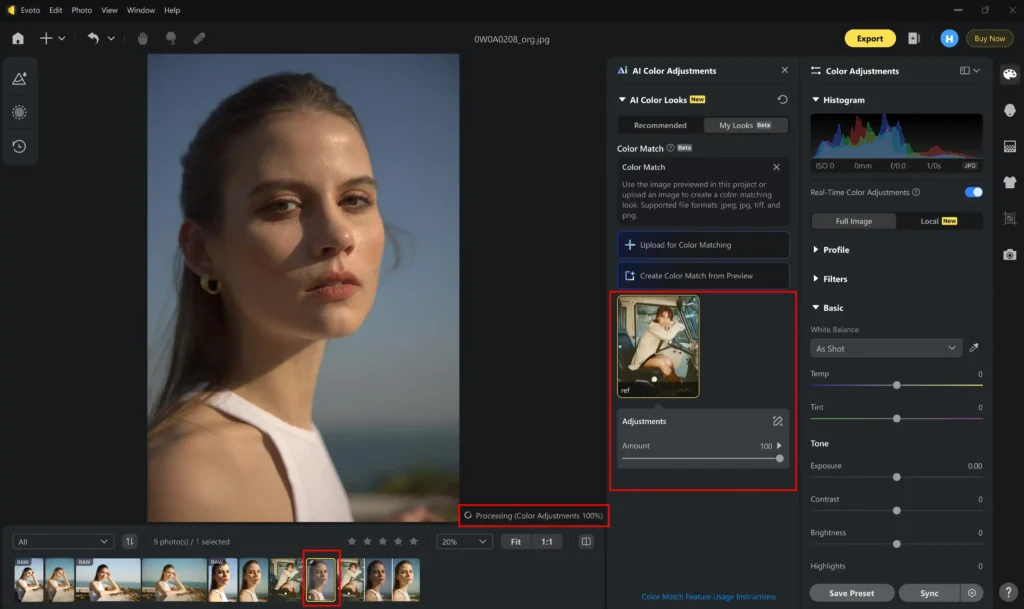
Step 4. Export the Color-Transferred Photo
Now, you matched the color from the reference photo. Press the “Space” key to preview the before-and-after changes. Give more fine-tune adjustments in “Portrait Retouching” , like blemish removal, until you are satisfied with the result. Then, press “Export” from the upper right corner to export the image.
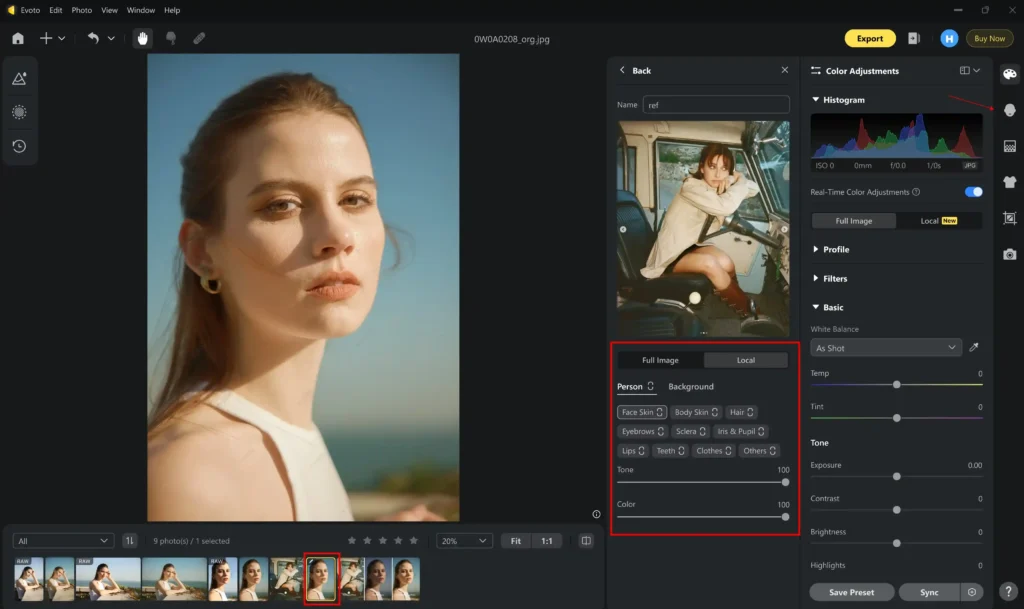
Here’s the before-and-after of the AI Color Match. The resulting photo almost “copied” the color style from the reference one, including the color of clothing, skin, sky, etc.

Common Tools to Match Color from Photo
While Evoto AI offers cutting-edge features for color matching, other traditional color adjustment tools also provide robust solutions to match color from photos. Below are some popular options, highlighting their features, pricing, and pros and cons.
1. Adobe Photoshop
Adobe Photoshop remains a go-to choice for professional photo editing, including image color matcher. Its Match Color adjustment feature is highly regarded for precise tone and color adjustments.
Pros & Cons
It offers highly customizable picture color match tools, extensive tutorials and community support, and seamless integration with other Adobe products like Lightroom and Illustrator, but it has a steeper learning curve for beginners and subscription pricing that may not suit occasional people.
2. Adobe Lightroom
Adobe Lightroom specializes in photo organization and editing, including color grading and tone adjustments. It’s a more user-friendly image color matcher compared to Photoshop.
Pros & Cons
Adobe Lightroom features an intuitive interface for beginners, excels in batch editing and photo management, and offers a cloud-based workflow for seamless access across devices, but it has limited advanced editing tools compared to Photoshop and relies on cloud storage for some functionalities.
Comparison: AI Color Matching vs. Traditional Software
| Feature | AI Tools (Evoto AI) | Traditional Software |
| Ease of Use | Beginner-friendly and automatic | Requires expertise and manual effort |
| Speed | Fast and efficient | Time-intensive |
| Precision | AI-driven for exact matches | User-dependent accuracy |
| Cost | Affordable subscriptions | High upfront costs |
AI-powered tools like Evoto outperform traditional methods in efficiency, accuracy, and accessibility, making them a preferred choice for modern editors.
Evoto – The Most Efficient AI Photo Editor
Conclusion
Matching color from photo is essential for photographers and designers seeking to elevate their work. With AI Photo Editor like Evoto, achieving professional-quality results has never been easier. Whether you’re a novice or an expert, leveraging the right tools and techniques ensures your visuals always stand out. Start experimenting today and take your editing skills to the next level!

